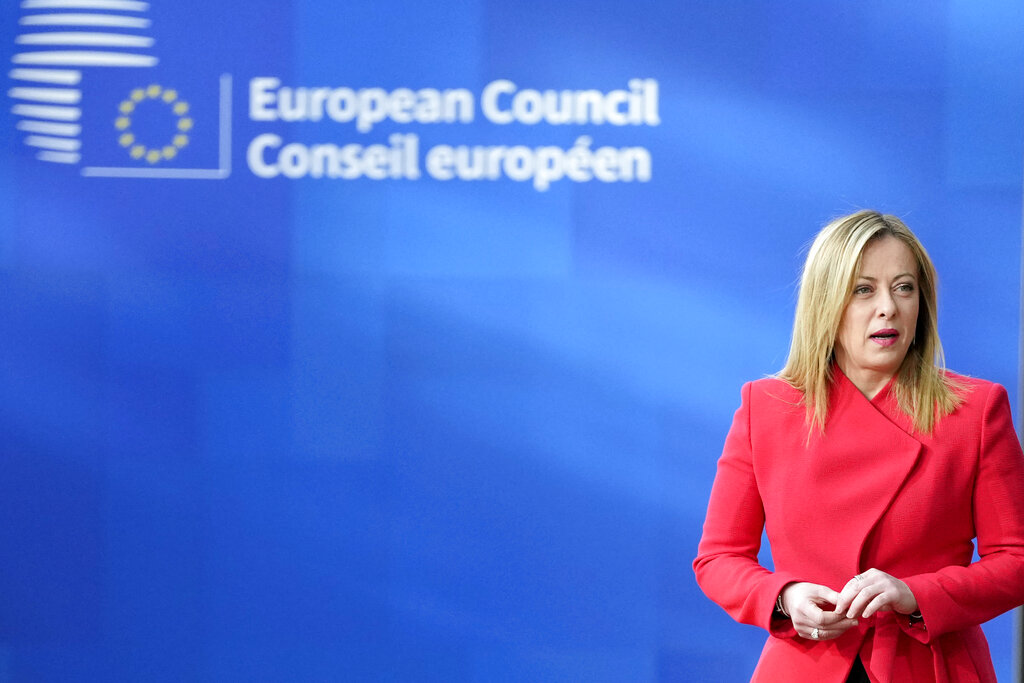It seems that Brussels and Berlin are trying to put everyone they can through the wringer, and now it’s Giorgia Meloni’s turn. The new Italian prime minister was in Berlin last week to meet German Chancellor Olaf Scholz, and what was said after the talks was, to put it mildly, a nuanced take on Meloni’s previous message during her election campaign.
Meloni suggested that immigration quotas should be set up as part of the fight against illegal migration. This was glaringly similar to the EU statement later in the week, which called for greater protection of the EU’s external borders and yet still insisted on migrant distribution quotas among member states.
Where is the tough election rhetoric that got Meloni into power in September’s election, when she called for much stronger and more decisive action on illegal migration? She is now being accused of “muddying the waters,” and while she has not yet completely U-turned on illegal migration, a half-turn has already been made.
Before we start condemning the Italian prime minister, who is not in a very comfortable position in European politics, let us put ourselves in her shoes. Her dilemma is this: What happens to an Italian prime minister who, after loud election promises, gives in to Germanic and Brussels pressure, and what happens to one who does not?
Matteo Renzi gained the velvet chair of prime minister in February 2014 with a manifesto pledge to pump money into the economy as a means of tackling the raging global crisis. That way, Italy would not fall into the same trap as Greece, which had been teetering on the brink of bankruptcy. Berlin and Brussels, on the other hand, were in favor of a tight fiscal policy, which meant that everyone should tighten their belts.
Renzi also made a trip to Berlin. There, he was taken care of by mommy Merkel. As soon as he got home, he declared himself a believer in a strict fiscal policy, as if nothing had happened before. He stayed in power for two years, but the German economic recipe did not work, and Renzi’s austerity program failed. The relentless collection of taxes and the loss of property due to non-payment of loans drove many people to suicide.
Even before the global financial crisis, Silvio Berlusconi was forced to resign as prime minister for financial reasons. The problems were artificially created by Brussels, which at the time was not in a position to take action against migrants. Berlusconi had repeatedly expressed his feelings against migrants and had taken concrete steps to stem their flow from Africa. For example, in 2009, Berlusconi was criticized in Brussels and Berlin for turning back a boat carrying migrants.
The state of the Italian economy was good, but this was not an argument in Brussels. The European Central Bank did not give Rome a loan to stimulate the economy and make the repayments on loans already taken out. Nor did it provide collateral for loans it was about to take out from other banks. Italy would have been on the verge of bankruptcy within three months, so Berlusconi had no choice but to resign.
So, Meloni now has to walk a tightrope over the precipice. She cannot go head-to-head with Brussels and Berlin, and must at least make a gesture of “love for migrants” while sticking to her electoral program in order to keep her voter base.
It is not an easy task because of what Ursula von der Leyen, president of the European Commission, said before the Italian elections: In the case of an unfavorable outcome for Brussels, i.e., Meloni in power, that if things go wrong, as in Hungary and Poland, “we have the means” to put them “right.” Yes, we know.






